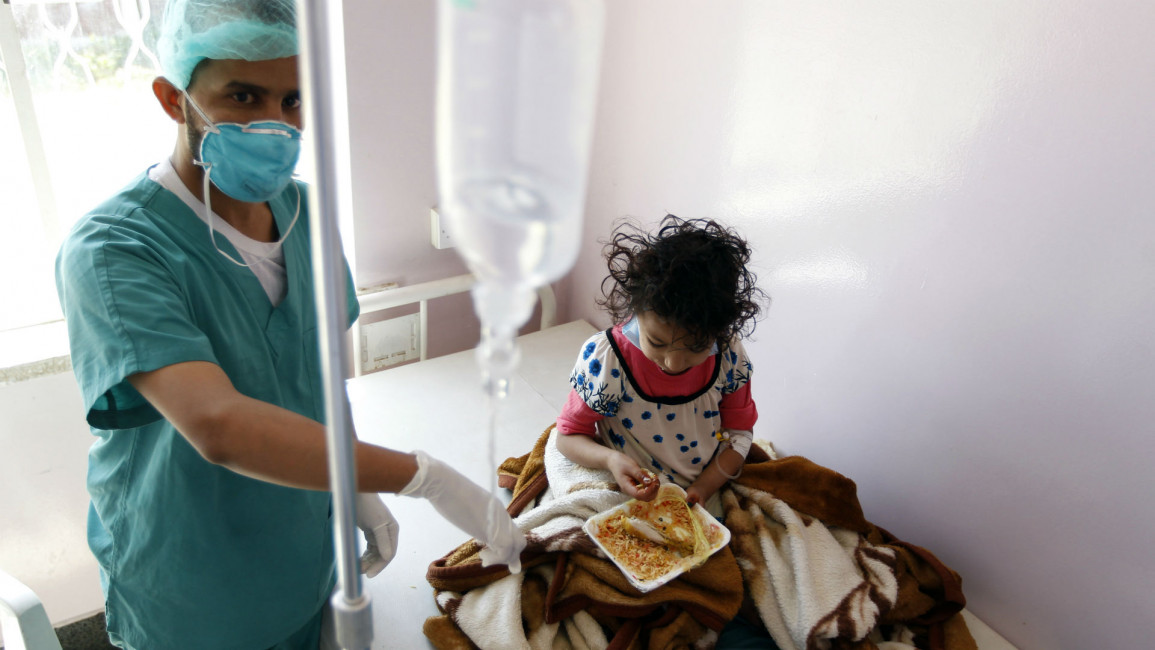UNICEF gives $2m to fight Yemen's cholera crisis
Some $2 million has been allocated to tackle Yemen’s deteriorating cholera crisis, the United Nations Children's Fund (UNICEF) announced on Monday, after authorities declared a state of emergency in the war-torn country this week.
The announcement came during a meeting between Yemen’s deputy minister for human rights, Samir al-Shaibani and UNICEF’s Yemen representative, Meritxell Relano, in the Saudi capital Riyadh, according to the Yemeni government agency Saba.
"UNICEF is working to protect children in Yemen and is aware of the difficult humanitarian situation in the country. UNICEF is working to avoid many of the mistakes in previous reports that needed to be reviewed and corrected," Relano said.
Hours earlier, authorities in Sanaa, controlled by Yemeni rebels, declared a state of emergency over the deadly outbreak of cholera that spread rapidly in the country's capital.
The Houthi-run health ministry said cases of cholera had worsened and that it was "unable to contain this disaster", in a statement carried overnight by the rebels' Saba news agency.
It launched an appeal for help from international humanitarian organisations to deal with the crisis.
Hafid bin Salem Mohammed, the rebel health minister, said the "scale of the disease is beyond the capacity" of his department, in a statement on Houthi-run al-Masira television.
The International Committee of the Red Cross (ICRC) said on Sunday the cholera outbreak has killed 115 people and left 8,500 ill between 27 April and Saturday.
But the United Nations humanitarian coordinator based in Yemen, James McGoldrick confirmed that the actual statistics of cholera cases were higher than reported figures.
International relief agencies on Sunday warned of a catastrophic humanitarian situation and urged citizens to exercise hygiene precautions.
"We now are facing a serious outbreak of cholera," Dominik Stillhart, the director of operations at the ICRC, told a news conference in Sanaa.
Doctors Without Borders (MSF) expressed fears that health authorities alone will not be able to deal with the outbreak.
"MSF calls on international organisations to scale up their assistance urgently to limit the spread of the outbreak and anticipate potential other ones," it said in a statement.
This is the second outbreak of cholera, a bacterial infection contracted through ingesting contaminated food or water, in less than a year in Yemen, the Arab world's poorest country.
The World Health Organisation now classifies Yemen as one of the worst humanitarian emergencies in the world alongside Syria, South Sudan, Nigeria and Iraq.



